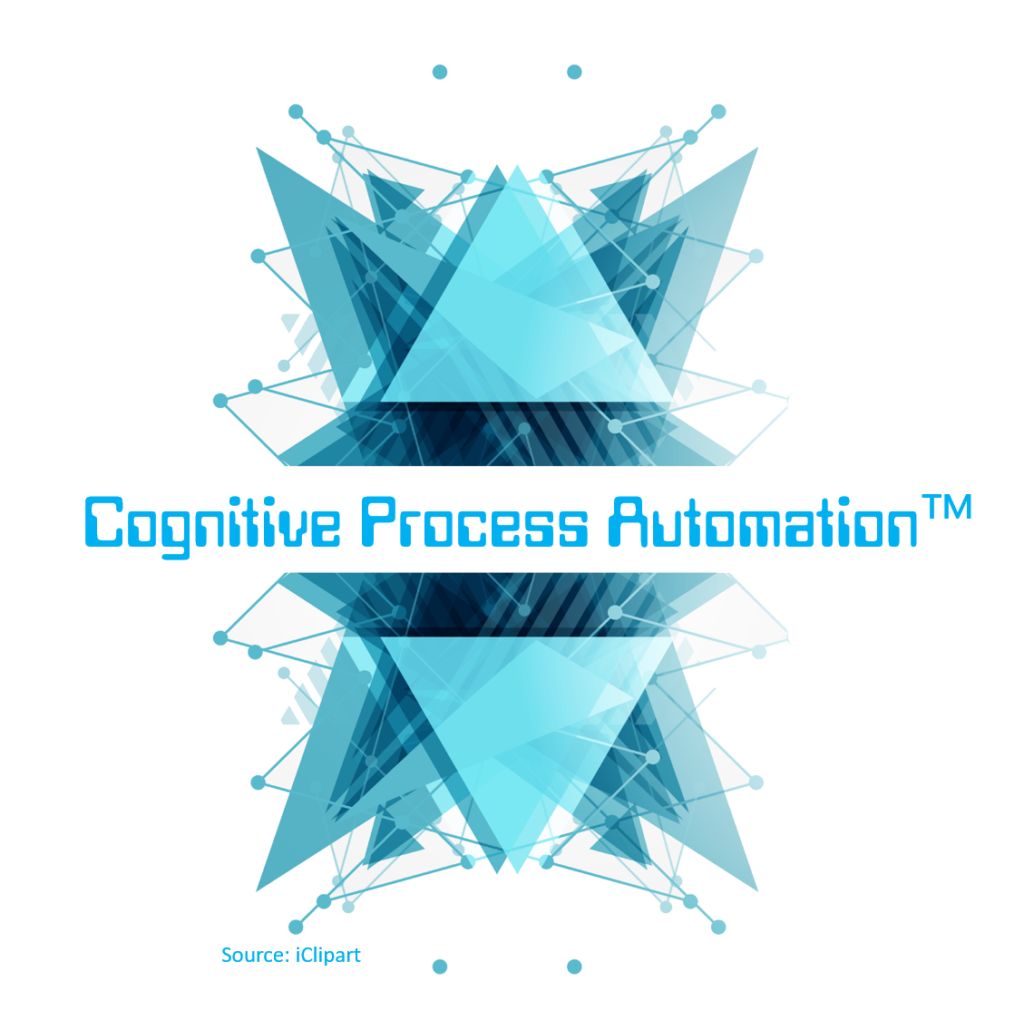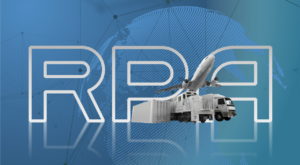Robotic Process Automation (RPA) is one of the hot topics in today’s business circles. Linda Tucci (@LTucci) writes, “Robotic process automation software is having a moment, despite there being a good deal of confusion about what the term refers to.”[1] Tucci offers this definition of robotic process automation: “Robotic process automation … refers to software that can help automate mainly back office work that is rules-driven, repetitive and involves overlapping systems: think tasks that search, gather, collate and update data.” The Institute for Robotic Process Automation (IRPA) explains, “By freeing up human labor to provide additional capacity for more strategic work, RPA simply creates more value with less investment.” Allan Surtees, head of IT at Gazprom Energy, told Tucci, “It’s what they call ‘swivel chair’ work — clicking on multiple systems, getting data from one source and putting it into another, where people are actually stuck four or five hours a day just doing this boring, manual nonsense.” Boring jobs lead to tedium which leads to errors which results in undesirable consequences. Eliminating swivel chair work is good for the employee and the company.
Beyond Robotic Process Automation
When somebody says something is “robotic,” they mean something is mechanical, stiff, and/or unemotional. That’s a pretty good description of swivel chair work. Vik Renjen (@VikRenjen), a Senior Vice President and Global Head of Banking, Financial Services, and Insurance at Sutherland, explains, “Automation requires no training curve, doesn’t get distracted and cannot make a mistake if programmed correctly — it simply follows the established rules and does so in the same manner every time, while flagging any exceptions for human eyes for further attention.”[3] RPA is a good way to relieve employees of tedium and drastically reduce errors associated with swivel chair work. For many tasks, RPA is an appropriate solution. Here’s the catch: RPA is only good for situations in which there is little change. Thomas H. Davenport (@tdav), a Distinguished Professor at Babson College, explains, “The implication is that automation is good for businesses where there isn’t much change, or in which products don’t vary much over time. In other words, we’re talking about business in the 1950s or thereabouts.”[4] Davenport’s point is that robotic process automation is about improving on the past rather than adjusting for the future. When you change “robotic” to “cognitive” — as in Cognitive Process Automation™ (CPA) — the picture changes completely.
Abhijit Kakhandiki (@Akakhandiki), Senior Vice President for Products and Engineering at Automation Anywhere, notes, “Advances in artificial intelligence (AI) are accelerating several technological developments as digital becomes the de facto way for businesses and individuals to engage with one another. While machines infused with deep learning capabilities promise tremendous progress, human-machine partnerships hold the key. The next frontier of AI that promises to take the digital economy to the next level is cognitive computing. It offers society an unparalleled opportunity to make smarter and more informed decisions.”[5] Like Davenport, Kakhandiki believes companies need to be forward looking. To that end, he believes “cognitive RPA” is the next step in process automation. Cognitive RPA and Cognitive Process Automation refer to the same thing. Kakhandiki adds, “Forward-looking organizations are exploring innovative ways to leverage advancements in RPA and cognitive technologies to gain competitive advantages in the growing digital economy.” He continues:
“We already know how to manage high volumes of data. Now the objective is to manage its complexity. Artificial Intelligence and Robotic Process Automation (RPA) play a vital role to drive innovative approaches to customer engagement, amplify employee capabilities and explore new business models. … The objectives for cognitive RPA are twofold — mirror human intelligence and simulate the human thought process.”
John Moore (@JM0ORE) agrees CPA or cognitive RPA or, as he calls it, intelligent process automation (IPA) represents the future. He writes, “The future of robotic process automation isn’t what it used to be. … Intelligent process automation may eventually supplant traditional robotic process automation as AI propels the technology away from automating rote tasks.”[6]
The Case for Cognitive Process Automation
I first started writing about CPA a couple of years ago.[7] At that time, I noted cognitive process automation uses a cognitive agent — one that can Sense, Think, Act, and Learn® — rather than a “software robot” or “bot.” As a result, automated processes can be improved not just implemented. Moore adds, “IPA diverges from RPA in that it goes far beyond recording a particular business process and repeating it again and again. IPA aims to harness AI to learn how to adjust and improve the process flow, creating intelligent processes.” Renjen believes cognitive or intelligent RPA is a catalyst for growth. He explains:
“There is so much to be learned from intelligent automation. Since this technology is still being adopted, we are only on the cusp of a tsunami of transformational change in operating philosophy that is going to prevail in the near future. Once intelligent automation or various forms of RPA are implemented within an organization, a wealth of information is available from the data surrounding those activities. Companies can use this new data and analytics to report on and gain insight on how to optimize labor capacity, conduct a Pareto analysis of top reasons for process exceptions, improve customer satisfaction and glean insights from new business process areas that could lead to opportunities for new product introductions from a marketing and sales standpoint.”
Analysts from McKinsey & Company reached a similar conclusion. “At its core,” they write, “IPA is an emerging set of new technologies that combines fundamental process redesign with robotic process automation and machine learning. It is a suite of business-process improvements and next-generation tools that assists the knowledge worker by removing repetitive, replicable, and routine tasks. And it can radically improve customer journeys by simplifying interactions and speeding up processes.”[8] They continue:
“IPA mimics activities carried out by humans and, over time, learns to do them even better. Traditional levers of rule-based automation are augmented with decision-making capabilities thanks to advances in deep learning and cognitive technology. The promise of IPA is radically enhanced efficiency, increased worker performance, reduction of operational risks, and improved response times and customer journey experiences.”
Cognitive or intelligent process automation allows companies to be forward-looking while making traditional processes more efficient. Kakhandiki concludes, “In the next few years, this will completely transform how organizations and humans will connect. Ultimately, humans and robots both work better when they work together. Humanity’s next great revolution depends on the co-existence of both. While AI has heralded the first few steps on this journey, cognitive RPA lights up the path ahead.”
Footnotes
[1] Linda Tucci, “Robotic process automation software: Find the right target,” TechTarget, 31 July 2016.
[2] “What is Robotic Process Automation?” Institute for Robotic Process Automation.
[3] Vik Renjen, “Intelligent Automation: An Undeniable Catalyst For Growth,” Forbes, 16 February 2018.
[4] Thomas H. Davenport, “Automation Is So Yesterday,” The Wall Street Journal, 7 January 2016.
[5] Abhijit Kakhandiki, “RPA and Cognitive Technologies: Combining forces to lead the way,” Economic Times, 7 May 2018.
[6] John Moore, “Is the future of robotic process automation intelligent?” TechTarget SearchCIO, April 2018.
[7] Stephen DeAngelis, “Cognitive Process Automation™ is needed in the Cognitive Era,” Enterra Insights, 25 April 2016.
[8] Federico Berruti, Graeme Nixon, Giambattista Taglioni, and Rob Whiteman, “Intelligent process automation: The engine at the core of the next-generation operating model,” McKinsey & Company, March 2017.





